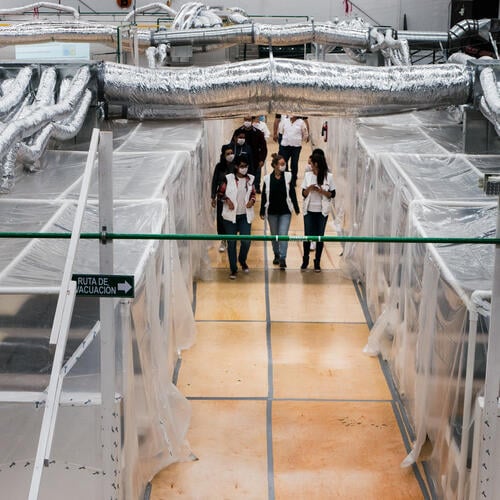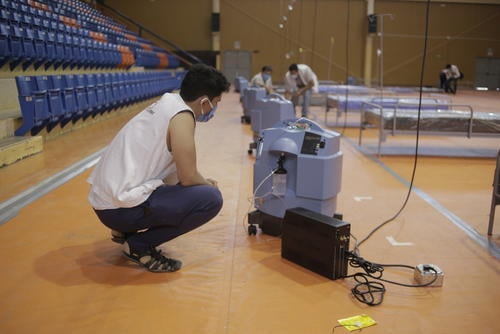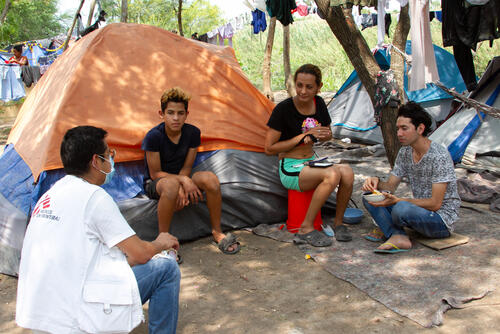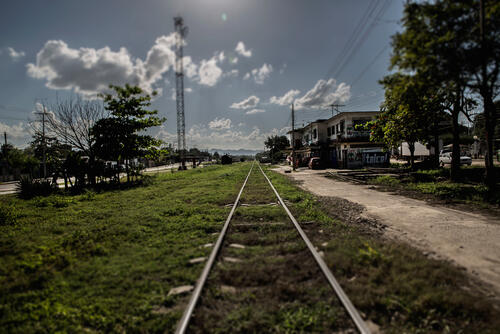The newly-opened basketball stadium that was the home of Tijuana's professional team, ‘Los Zonkeys’, is now an auxiliary hospital unit where teams from Médecins Sans Frontières (MSF) will begin assisting non-critical COVID-19 patients today, in Tijuana, in the north-western corner of Mexico.
MSF's response to the pandemic in this space will be coordinated with the Baja California state Secretary of Health and a civil society organisation Apoyemos Tijuana (Let's Support Tijuana). The civil society organisation has set up the stadium with all the necessary requirements to be used as an extension of the Tijuana General hospital and have entrusted medical operations to MSF teams.
Through this support we want to relieve the enormous workload of health workers who are responding to this pandemic and help alleviate the suffering of patients.Maria Rodríguez Rado, MSF COVID emergency response coordinator in Mexico
“We will be providing support to health institutions with the objective of relieving the hospital burden in this city, which concentrates the largest number of accumulated cases in Baja California and is one of the urban areas with the highest number of deaths from this disease in the entire country,” said Maria Rodríguez Rado, MSF COVID emergency response coordinator in Mexico. “Through this support we want to relieve the enormous workload of health workers who are responding to this pandemic and help alleviate the suffering of patients.”
The MSF team will consist of 120 people, of which more than 60 per cent will be health personnel who will remain in Tijuana for the duration of the emergency.
“We have recruited medical personnel from different parts of Mexico because we know the need for health personnel in the city's public health structures,” says Rodríguez Rado.
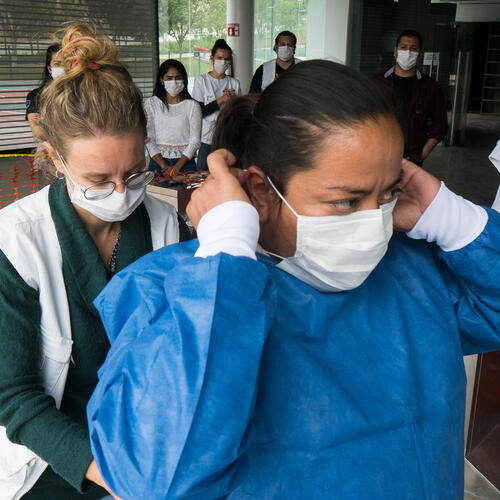
In this hospital extension unit, which has been adapted in recent days by ‘Let's Support Tijuana’, MSF will have the capacity to care for up to 50 patients with moderate forms of the new coronavirus.
“The start of care will be staggered in the first few days until the maximum operating capacity is reached,” says Laura Gomez, MSF’s coordinator in Tijuana.
The facilities were set up as a circuit that allows both health personnel and patients to be protected. There are oxygen lines in all beds, rest areas, adapted bathrooms and showers for patients, a special care area, and a sanitation area for medical staff.
The patients that we will be treating in this space will only be those transferred directly by the Secretary of Health of Tijuana General hospital, who are in recovery, and once they have concluded their treatment and are out of danger they will be discharged.
We have offered our support because we want to show solidarity and support to the people of Tijuana and their medical professionals who are working on the front lines to stop this pandemic.Maria Rodríguez Rado, MSF COVID emergency response coordinator in Mexico
An integral part of each patient's treatment will be psychosocial care by MSF psychologists, who will be providing assistance to both patients and their families.
Tijuana is now a strategic location for MSF teams in Mexico to combat the pandemic, not only because it is on the border with San Diego in the United States, and one of the epicentres of the outbreak in the country, but also because it is a city traditionally made up of migrants and people who have been deported, with a large number of homeless people.
“We have offered our support because we want to show solidarity and support to the people of Tijuana and their medical professionals who are working on the front lines to stop this pandemic,” said Rodríguez Rado. “We also seek areas of intervention for those who are extreme vulnerable and excluded from healthcare.”
Given the ease with which the virus can spread, MSF teams will implement infection prevention and control activities within the hospital to prevent the spread of the coronavirus and ensure the safety of health workers.
In Mexico, MSF teams have adapted our operations in the country in response to COVID-19, trying to maintain priority attention to the most vulnerable people that we can assist in different parts of the country. This includes both migrants in Tenosique, Coatzacoalcos, Mexico City, Nuevo Laredo, Tijuana, Reynosa and Matamoros, and communities affected by violence in Guerrero.



